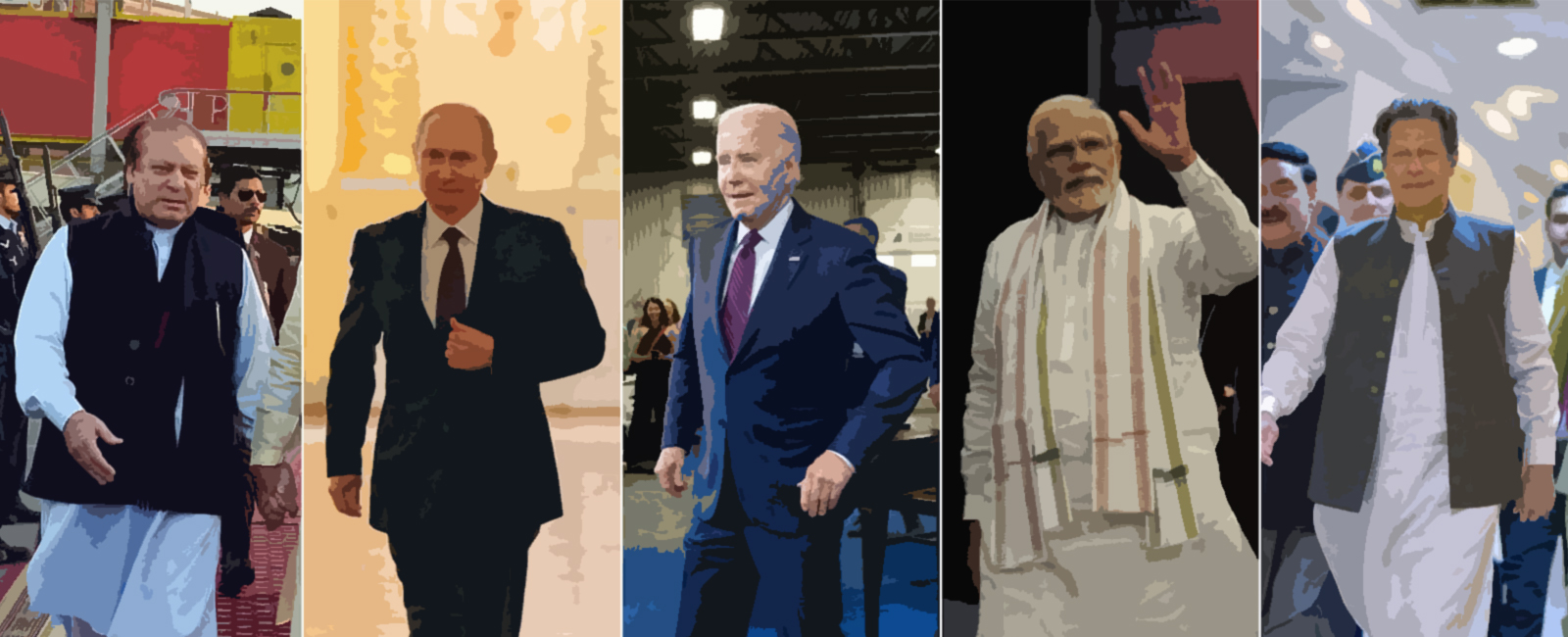Election Year 2024: 4.2 billion voters, 83 polls, 78 countries
Your complete guide to when, where and how polls are taking place across the globe in election year 2024

More than 4.2 billion people — representing more than half of the world’s population — across the globe will participate in elections in 2024.
Seventy-eight countries will hold 83 national-level executive or legislative elections in the next year and we won’t see that many again until 2048, according to Atlantic Council, a Washington-based think tank.
2024 is also the largest election year in terms of sheer volume in the world’s history, showcasing the enduring power of democratic principles across the globe.
The polls — touching almost every continent — are scheduled to start right from the first week of January. The Asian continent will see the highest number of voters exercising their right to self-determination.
As per The Economist, some places, such as Brazil and Turkey, will not hold general elections but have local or municipal elections in which the whole country will participate. Similarly, the European Union's 27 member states will elect the bloc's next parliament.
2024 is a culmination of trends that are designed to erode trust in institutions and I think what’s key here is to keep an eye on the smaller elections as well as the big ones. — NDI Director Kay Spencer
Many of the nations that are going to polls are part of some of the world's powerful groups like G20 and G7, which means that there may be some geopolitical impacts, and the international landscape is also likely to be affected.
Although elections in some countries will be mere formalities, offering little to no influence — such as Russia — on the existing power structures, others will be pivotal moments for shaping national policies and leadership — including the United States.
The 'big year' will start with the January elections in Bangladesh and despite the opposition Bangladesh Nationalist Party's protests, Prime Minister Sheikh Hasina is set to complete her 15 years in power.
In February, we will see two populous Muslim nations — Pakistan and Indonesia — head into elections nearly a week apart. In Pakistan, it is unclear who might form the government, but according to American Journalist David A Andelman, Indonesia's voters are "unlikely to loosen the grips on the power of wealthy business and military elites".
In May, Africa's most industrialised nation — South Africa — will hold elections seen as the most crucial ones since the end of apartheid in 1994. The other nations who will decide their fate include Algeria, Botswana, Chad, Comoros, Ghana, Mauritania, Mauritius, Mozambique, Namibia, Rwanda, Senegal, Somaliland, South Sudan, Tunisia and Togo.
The continent will see the highest number of elections in 2024.
In the upcoming polls, the ruling African National Congress (ANC) faces an uphill task as fears grow that it may not secure the necessary 50% of votes needed to retain power.
Since there are so many elections, there will be distractions and the kind of advocacy and activism that the global community plays won’t be there. — Carr Center for Human Rights Policy fellow Phumzile Van Damme
In Europe, we might see a power struggle as political parties will seek to form coalitions as over 10 parliamentary and presidential elections are slated to take place over the next 12 months. Finland, Belarus, Portugal, Ukraine, Slovakia, Lithuania, Iceland, Belgium, European Parliament, Croatia, Austria, Georgia, Moldova and Romania will vote as Europe heads to the biggest election cycle.
The next year is considered significant in terms of the electoral changes that the world will witness, but this great march to the ballot box, according to The Economist, does not necessarily mean an explosion of democracy.
Election calendar: date-wise
Jittery Pakistan elections
The general polls are scheduled to take place on February 8, 2024, across the Muslim-majority South Asian nation, with nearly 106 million people expected to exercise their voting rights.
The polls will be held for the National Assembly and four provincial legislatures — Balochistan, Khyber Pakhtunkhwa, Punjab, and Sindh.
The top two issues that the incoming government will have to deal with are economic stabilisation and political uncertainty — both of which have been persistent since the ouster of Pakistan Tehreek-e-Insaf’s government in April 2022.
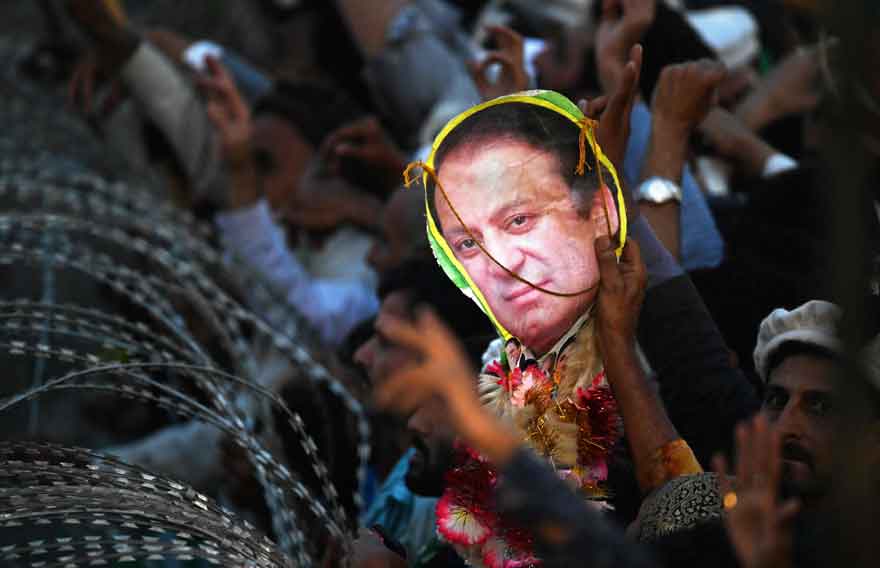
It’s still too early to say who might form the government in the centre, but several politicians have hinted that a coalition would rule the country as no one is currently in the position to grab a majority and elect their prime minister.
However, as Pakistan Muslim League-Nawaz (PML-N) supremo Nawaz Sharif secures reliefs from courts and seemingly all his worries are ending ahead of the polls, PTI founder Imran Khan remains incarcerated and disqualified.
Despite his disqualification and fallout with the establishment, Khan remains a crucial reason for PTI's vote bank — as was evident when his party released an AI-generated audio of Khan to boost the supporters' morale.
But his party might face an uphill task when they head into polls as Khan has stepped down as the PTI chairman and handed over the reins to Gohar Khan, the man who has been in the party for around a year.
The Biden-Trump US battle
Get ready for a wild ride — the 2024 presidential race is shaping up to be a historical whirlwind. It is expected that Democrat President Joe Biden will go up against Republican ex-president Donald Trump in November. More than 160 million are expected to use their right to vote and change the future of America.
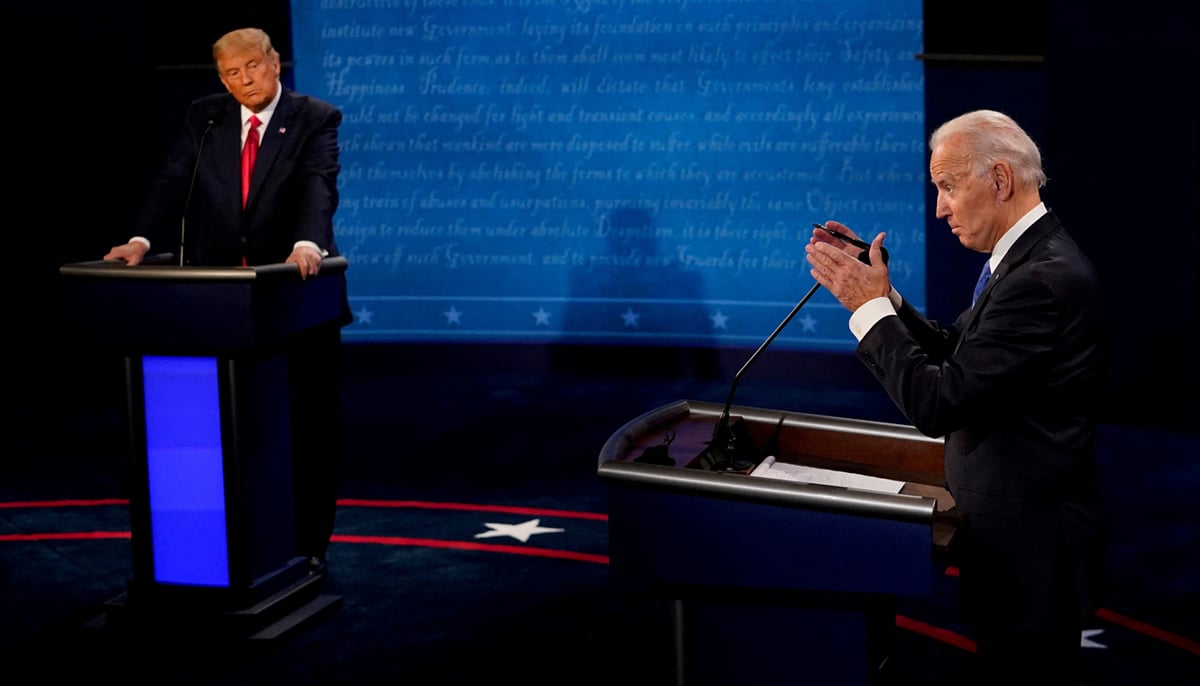
The foreign policy implications will be impactful as Biden will be coming in with more power than before as he would have a second consecutive term, while Trump is prone to making rash decisions, which could have unexpected impacts.
Trump recently was disqualified from Colorado's presidential primary ballot by the state's Supreme Court, an extraordinary ruling that could be struck down by the US Supreme Court ahead of the November 2024 US election.
It is not clear how the Supreme Court would rule, but it is dominated by a conservative majority that includes three Trump appointees, some of whom are longtime skeptics of giving courts powers that are not clearly based in legislation.
Even if the ruling survives Supreme Court review, it could be inconsequential to the outcome of the November 2024 election because Trump does not need to win Colorado and is not expected to, given its strong Democratic leanings.
EU's fragmented political landscape
Twenty-seven countries in the European Union will go into elections, with hundreds of millions of people expected to vote in the nations — including France, Germany, and Sweden. The European elections will be held on 6-9 June 2024.
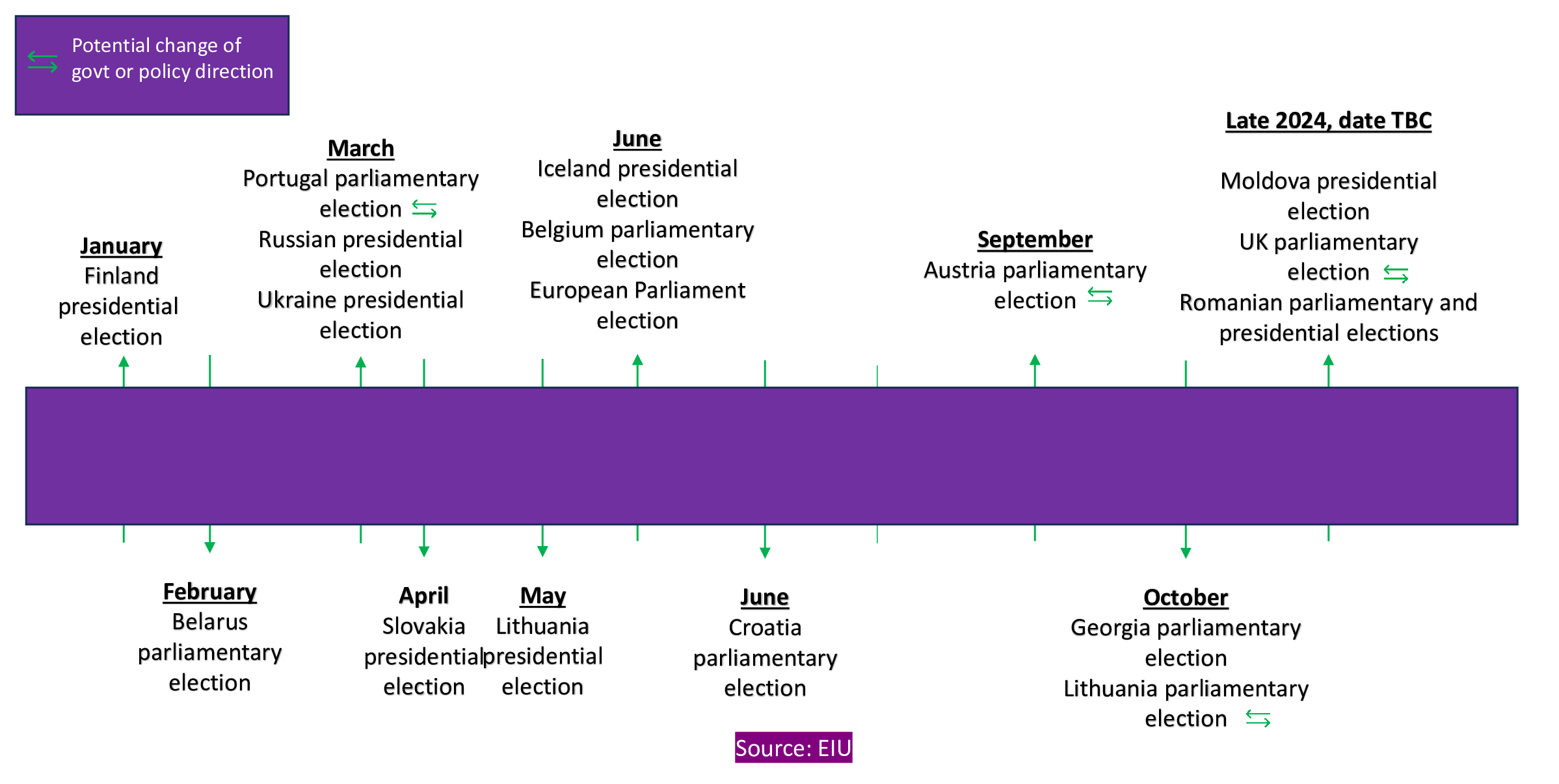
The Economist Intelligence expects Europe's fragmented political landscape in 2024 could lead to gridlock, slow decision-making, and challenges in addressing pressing issues. It is expected that making stable majority governments will be hard, which will ultimately lead to multiparty alliances.
The European elections are held every five years. The last European elections took place in May 2019.
India, where Modi might win a third term
India's 2024 elections carry immense weight as more than 600 million voters will decide the country’s destiny in May.
Hindu nationalist Narendra Modi’s Bharatiya Janata Party (BJP) is still leading ahead of the Indian National Congress and its allies, local opinion polls show.
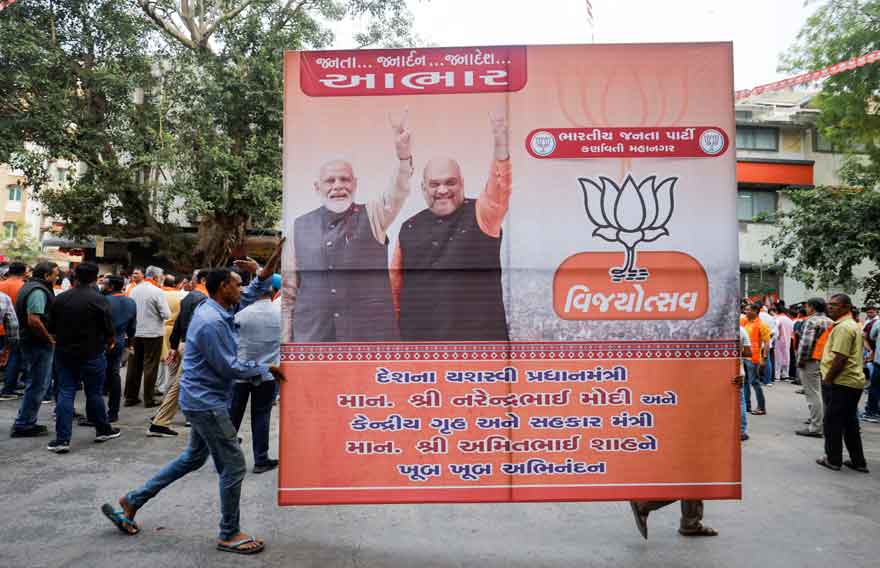
The ruling Hindu nationalist party has won three out of four key state elections, setting the momentum for the national polls.
The BJP’s poised victory would mean the atrocities against Muslims will continue internally — and the relations with Pakistan might not mend due to the party’s non-compromising stance on Kashmiris’ rights.
Fears galore
As the stakes are higher than ever, experts fear that it will be hard for the global community to oversee the entire process — and for the platforms to guarantee that there isn’t manipulation.
The elections are taking place at a time when the public discourse is increasingly taking place online, which makes the role of social media platforms far more important.
At a recent panel discussion hosted by the Atlantic Council, Technology and Human Rights Fellow at Carr Center for Human Rights Policy, Phumzile Van Damme, voiced fears that since there are so many elections, there will be distractions and the kind of advocacy and activism that the global community plays won’t be there.
Brazilian journalist Patrícia Campos Mello, who is a reporter at large and columnist at Folha de São Paulo, said electoral denialism would spread around — just like it did in January 2023 in Brazil and the capitol riots in the US in 2021.

Kay Spencer, program director of elections at the Washington-based National Democratic Institute (NDI), said the year 2024 is a big year for social media platforms and it will be important to monitor how they will manage all the elections that are coming up.
“2024 is a culmination of trends that are designed to erode trust in institutions and I think what’s key here is to keep an eye on the smaller elections as well as the big ones. What we have seen in the past is that we know authoritarians use these smaller elections as a testing ground for tactics to use in bigger elections later on,” she noted.
— Khawaja Burhan Uddin is a staffer at Geo.tv. He posts @Khawajaburhan6



